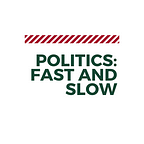Does Inequality Matter?
Some say it’s fine as long as everyone gets richer; others warn of dangers to democracy and the integrity of the nation. Truth is, neither view is fully correct.
Disraeli, father of one-nation conservatism
London, 1845. Future Prime Minister Benjamin Disraeli has published a novel in three volumes, called Sybil, or The Two Nations. The work charts the plight of the working classes in England, and sparks outrage about the situation.
You might think, without prior knowledge of Disraeli’s career and political leaning, that he was an early social reformer within the Liberal Party, or perhaps even a Marxist. In fact, Disraeli served twice as a Conservative Prime Minister, and founded, in essence, the modern Conservative and Unionist Party.
The second title of the novel is particularly significant. It underlines and encapsulates Disraeli’s political philosophy: that Britain was split into two nations: rich and poor. They must, according to Disraeli, be united to avoid revolution. One-nation conservatism is born.
Disraeli establishes modern thought on inequality, from a moderate political standpoint, rather than that of a Marxist. He does so out of pragmatic self-interest…
